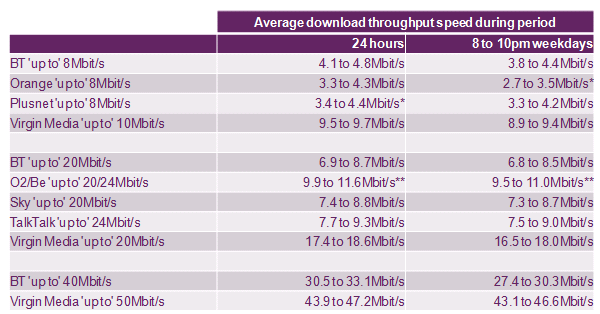We all know that the advertised broadband speeds are nowhere near the actual broadband speeds. Ofcom, the UK communications regulator, recently analyzed 11 broadband packages, which collectively account for over 90 percent of all British broadband subscriptions, that the actual download throughput only 45 percent of the advertised "up to" speed.
Ofcom has thus proposed the following to solve the problem:
- a Typical Speeds Range (TSR) representing the range of speeds actually achieved by at least half of customers (around the median) should be used when using speeds in broadband advertising;
- if a maximum 'up to' speed is used in an advert, then the TSR must have at least equal prominence. The theoretical maximum ‘up to’ speed stated must also be a speed actually achievable by a material number of customers;
- advertisers should include a qualification alerting consumers that they can confirm the likely speed that they will receive when buying their service, and, where it is the case, must also explain in the body of the advert that actual speeds depend on line quality and distance from the exchange;
- any reference to broadband speed in advertising (for example, words such as "fast", "super-fast" or "lightning") must be accompanied by a TSR, which should have at least equal prominence to these words.

You can read the full research here: UK fixed broadband speeds, November/December 2010.